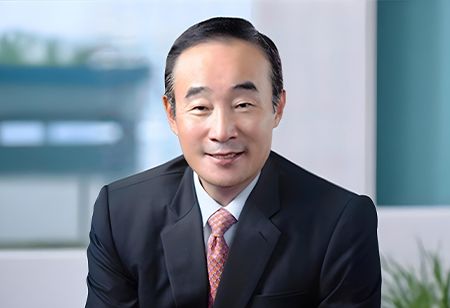
In the 17th edition of the World Policy Conference, Hur Kyung-wook, Chairman of Seoul Financial Forum and chairman of the Board of the Korea Center for International Finance, shares his views on the political challenges faced in the Asian economy and the importance of laws that need to be consistent in the political level. He pointed out the growing concern of Asian nations in maintaining the economic and financial linkage with developed nations. Following are the key insights:
The martial law imposed by President Yoon was resisted by the people through mass protests. Even though there was short-term turbulence in the financial space, Korea's economic stability remains intact. However, the economy is anticipated to improve, similar to past instances of market instability. Asia is becoming a key economic player, with the GDP share expected to soar 50% by 2040. India plays a rising role in the Asian economy and is positioned to become the third-largest economy neutral to China and the US.
The martial law was a single isolated individual event engineered by President Yoon. It needs to be more consistent with the Korean political and economic development level and not supported by mass people on the street. Of late, there was a badly misjudged and unfortunate event, but it was very short-lived. More importantly, it's the people on the street who resist this martial law; they just voluntarily swarmed to the National Assembly, blocking soldiers from intervention from trying to pull out National Assembly members, and even the soldiers were very reluctant to obey the order, so that they are not aggressive at all, creating enough space for the member of parliament to get in.
According to the constitution, they voted unanimously, not only by the opposition members but also by some members of the ruling party who were present, unanimously agreed to lift this martial law. It was two hours and 30 minutes after the imposition of martial law. So, we have seen not the decay of democratic Korea but rather the attestation of the democratic resilience of Korea because it's just the people on the street who clearly said no to this ill-conceived attempt.
There was some short-term turbulence in the financial market, but it was contained to an acceptable degree. All the credit rating agencies, like S&P and Moody, said that Korean economic stability is intact. They don't have any intention to change their rating of Korean sovereign rating, and this is unfortunate. However, we witnessed these eight years ago, and even at the time, despite the short-term turbulence in the market, the economy came back after a couple of months.
Asia is the most dynamic region. In the 1970s, the Asian economy's share of global GDP was 20%. However, the market exchange rate in the previous year was 36%, and most likely, it will reach 50% in the 2040s, so-called the coming of the Asian century. Still, now we are facing some unfavorable winds. It's a dilemma between economic reality and geopolitical pressure, particularly the rivalry between the US and China, which is getting increasingly severe. Asian economies are very closely integrated with the Chinese and US economies, and now there is increasing political tension to pressure Asian countries to take sides, politically at least. Regarding geopolitical reality, a common concern exists: the ongoing tension in the South China Sea and the Taiwan Strait, which remains a crucial flashpoint. Moreover, there is a new development that adds another layer of instability in the area, which is the presence of North Korean troops in Russia.
India is growing in importance in Asia and is currently the fifth-largest economy. As they go further, they will be the third largest economy. It's neutral to both China and the U.S. so that it can stabilize the region. Korea is also strengthening relations with India and the rest of the world. India is going to play a more critical role. Moreover, there was a brief mention of Comprehensive and Progressive Agreement for Trans-Pacific Partnership CPTPP) and WTO is in paralysis, so that regional arrangements are essential. Korea also wants to join the CPTPP. Also, even though it's not a trading regime, it actively participates in the IPF. And all these regional arrangements can stabilize the region.
We use cookies to ensure you get the best experience on our website. Read more...